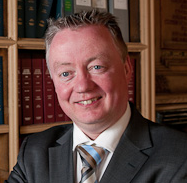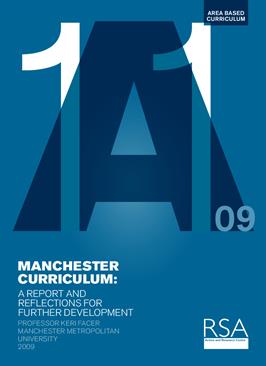Learning must continue to prepare individuals for employment in whatever form it takes - and support individuals and families as they navigate the multiple career transitions of twenty-first century working life - but it must also enable individuals to strive and thrive in every aspect of their life beyond the workplace: as citizens, as local residents, and as family and community members. The centrality of place and locality is vital if we are to achieve such an outcome.
Download the report: A place for learning (PDF, 1.4MB)
Read the report online: A place for learning (via Medium)
For too long lifelong learning has had what those in the marketing world might term a branding problem; it means different things to different people and nothing to far too many. Even to those who have supported greater participation and investment in lifelong learning (and in the adult, further education and skills sectors that do much of its heavy lifting), the starting point has been both one of deficit (putting right what statutory schooling has got wrong) and narrowly instrumental (focused almost exclusively on workforce access).
Tony Breslin’s new Power to Create paper, the third in this important RSA series, A place for learning: placing learning at the heart of citizenship, civic identity and community life, starts from a completely different place. Using the imagined city of Kensalfield as its setting, the author begins with the notion that we need to grow cultures of learning in our neighbourhoods and communities, whatever opportunities local or wider labour markets have to offer. Kensalfield could be any small or medium sized city in the UK, or it could be a larger town, one of those ‘near-cities’ lacking only in a Cathedral, or a suburb or borough of any larger urban centre.
Might this point the way to a new educational localism, not one in which the local authority fixes the school roof, but one in which it helps to bring together local stakeholders from all sectors to create and champion these learning cultures?
Breslin’s analysis, conveyed in a memo from Kenslafield’s outgoing Director of Education, Mike Barter, to newly elected City Mayor, Essi Spanier, has three central tenets:
- If we are to build an inclusive culture in which learning is both genuinely lifelong and life-wide, permeating every part of our existence, we need to create locally rooted cultures of learning in which learning can thrive and in which learning is seen as being part of what it is to be a citizen. He argues that the City of Learning model, now established in a number of US cities and championed by the RSA’s Anthony Painter, might offer a way forward;
- If we are to put the value of education at the core of citizenship, civic identity and community life in this way we need to focus on knowledge, skills and attitudes that are both relevant to an ever changing employment landscape (and one in which the lifelong career is a likely destination for an increasingly diminished number) and to be brave enough to say that learning isn’t just about employability – educated citizens are healthier citizens, and educated, informed communities are better places to live;
- If we are to succeed with any of this we need to think very seriously about what we are asking of our schools - schooling is a staging post on every individual’s lifelong learning journey, not a precursor to it; yes, a broad academic education will remain vital, but even when the dash for grades is successful, it is insufficient – we need young people to complete their statutory schooling years with a love of learning, a curious mind and the capacity to find the answers to questions as yet unasked – young people with the capacity and awareness to re-enter education when they need to. In short, we need them have the confidence to question and the power to create.
In his Foreword to Breslin’s paper, Matthew Taylor asks “could your region, city or town embrace the spirit of Kensalfield, a city of learning in every sense of the term? If the answer could be ‘Yes’, come and talk to us.” The RSA would love to work with colleagues from all backgrounds and sectors to make Kensalfield a reality in your community, town or city; we believe the outcome could be transformational for all concerned.
Welcome to Kensalfield: Read the report online A place for learning (via Medium)
Download the report: A place for learning (PDF, 1.4MB)
Dr. Tony Breslin is an RSA Fellow, an Associate in the Creative Learning and Development Team and Director at Breslin Public Policy Limited.
Follow Tony on Twitter @UKpolicywatch
pdf 522.9 KB
Contributors

Bushey
